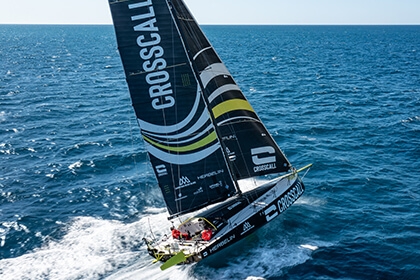
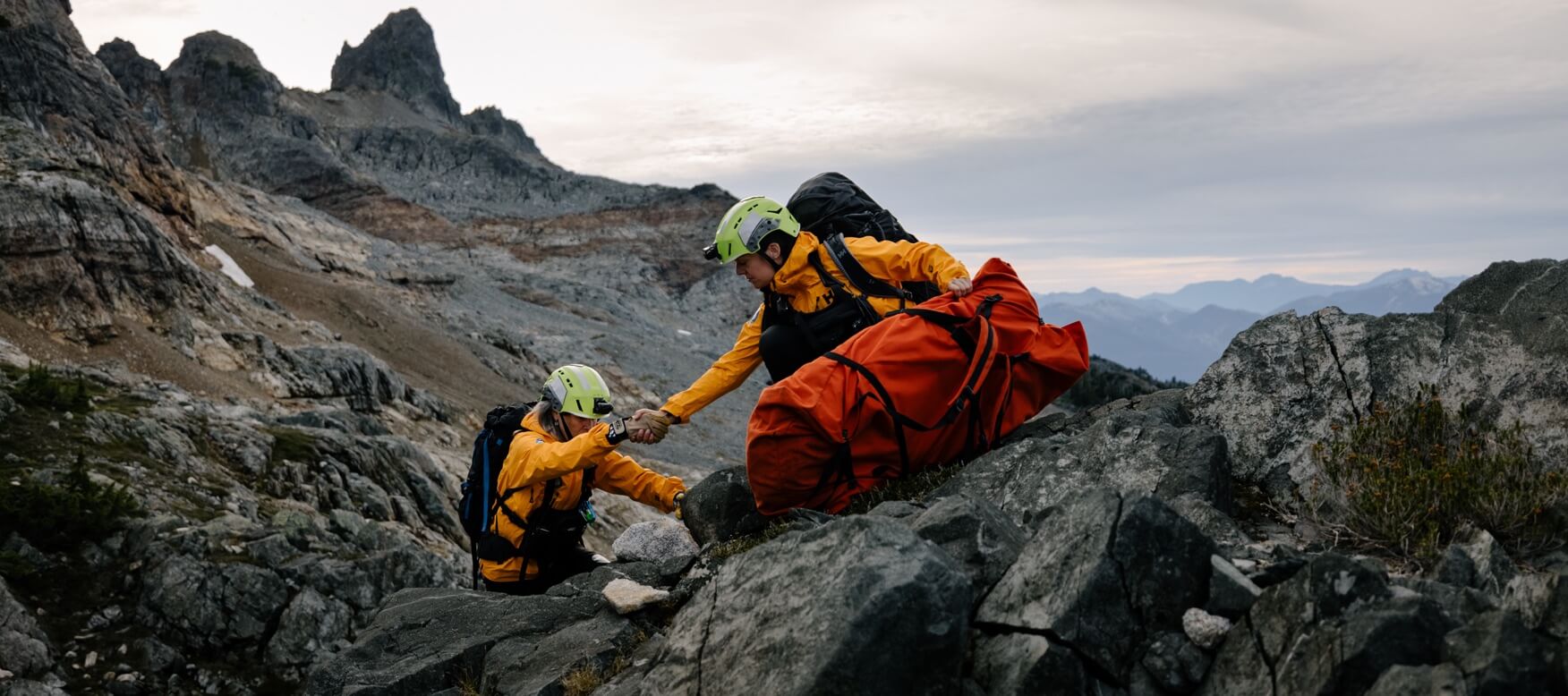
Moments of truth with Nathalie White
Belong in the moment | Squamish Search and Rescue
April 11, 2021
9 min read
The paradox is: When you belong in the moment, you don’t necessarily feel the moment, or consciously savor the moment, it is more like a heightened state of being, an unexplainable feeling of being part of the elements, allowing you to reach what is called flow, which means to connect to the world beyond yourself.
A moment is 2–3 seconds. A day is a continuous stream of these moments, one after another, in a seamless motion that we mostly miss out on, our minds instead occupied by the worries of everyday life. Once in a while, however, we manage to truly feel a moment, maybe while staring at a bright sunset or waiting for the bus with a dead cell phone.
To belong in the moment is to be present, to leave all else aside, and be in the ‘here and now’ with your whole body and mind. It gets easier with a purpose, and with control over one's mind. And it doesn’t necessarily involve happiness.
This story is part of the series We Belong in the Moment, where professional rescuers and athletes share their thoughts on work and life and how they attune to it all.
Back in 2014, Nathalie worked at a local store in Squamish, where a friend used to hang around on quiet days. He was a Squamish Search and Rescue member, and they’d often chat about his recent rescue missions. The dramatic stories sparked the imagination. One weekend he could be flown into the Tantalus mountain range to rescue hikers, just to be swooped up by a helicopter when the mission was accomplished and flown directly to Garibaldi to help climbers.
These adventure stories were inspiring, to say the least, and in the end, there was no doubt in Nathalie's mind—she wanted to be a part of search and rescue. Since then, she has.
"It's extremely motivating. There is so much to learn, the training is ongoing, there is always room for improvement, there is no limit really," she says enthusiastically. "If you want to join water rescue, they provide all the training for that. If you want to join rope rescue, the team provides training for that as well."
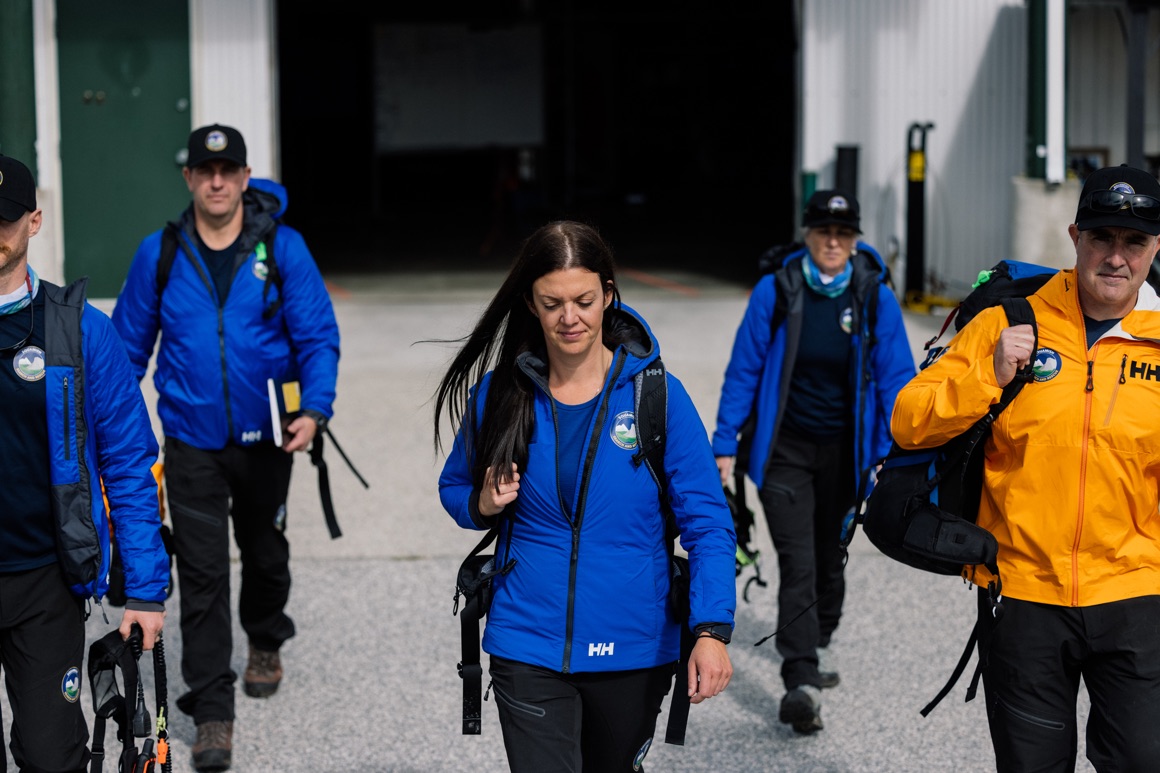
Living and working in climbing mecca Squamish means rope rescue skills can come in handy when one least expects it. "We live in such a beautiful little town, and although it is growing quite rapidly, there is still a core of people spending a lot of time in the outdoors, and we all know each other. Everyone we know either mountain bikes or dirt bikes or climbs, and there might come a day where you might get called out to help a friend; it's always in the back of your mind when a call comes in. At the end of the day, being able to bring them back to their families is really rewarding."
Before joining Squamish Search and Rescue, Nathalie worked as a guide in Whistler for some years and was used to interacting with people in the outdoors. "Search and rescue is the perfect blend of playing in the outdoors, perfecting your skills, and being able to help people."
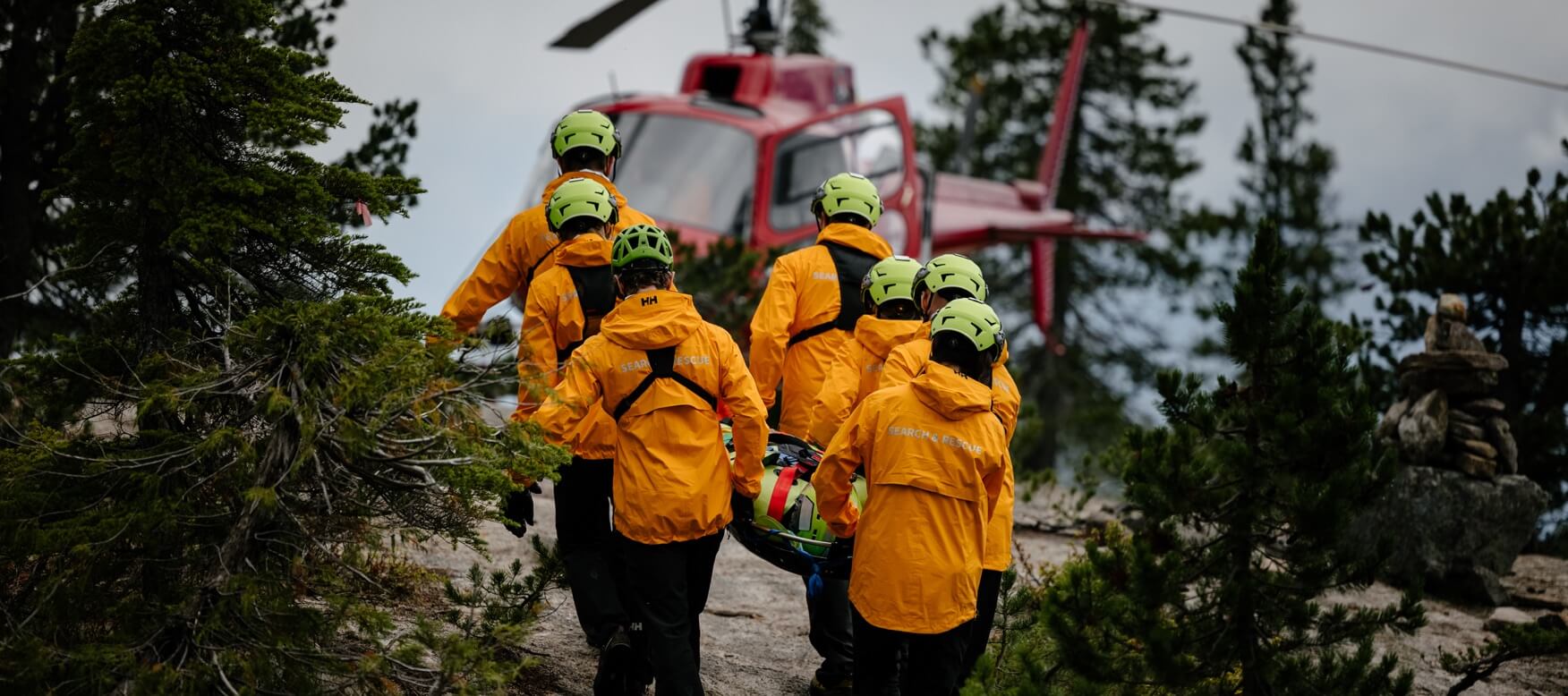
Built on trust
It starts with a call to the Emergency Co-ordination Centre which calls the Search and Rescue managers who all go on a conference call. The managers send out a text message to the team with a description of the situation. “I think the initial rush of adrenaline comes when you get the initial text message,” says Nathalie.
They usually gather at the compound where all their equipment is and the planning starts. Will they need a long line to extricate the patient? Will they need ATVs? Should they send a ground team?
“Getting your head in the game is really important once you walk out those doors of the compound and board the helicopter,” says Nathalie. “There’s no time to think about anything else besides what your role is and what needs to be done. I think there’s a continuous checklist that keeps going through your head. You have to think about all the steps that need to be taken in order to make it as smooth as possible. You don’t feel the hours go by. I mean, most calls last four, five, six hours but they feel like a blink. It’s exciting, it’s invigorating, you don’t get tired.”
For Nathalie, it’s all built on trust. “I think trusting each other and trusting our team members is everything because you get into these situations that are out of the ordinary to most people and you have a job to do, a task to complete, and now is not the time to get nervous, to doubt yourself or get scared. You can always look back at your teammates and know that they have your back and if anything were to happen to you, you’re in the best hands possible. I guess it all comes down to trust really, trusting your team members.
You can always look back at your teammates and know that they have your back and if anything were to happen to you, you’re in the best hands possible. I guess it all comes down to trust really, trusting your team members.
“There are no egos. This kind of work brings out a certain type of people and that is possibly what brings us close together. There is this unity, there is this shared goal. It’s a surreal feeling, being out in the elements in all sorts of situations, having a connection with the person to your right and the person to your left, and having this shared passion.”
Every situation is fluid, every situation is different, you never know what you’ll walk into. The feeling of trust within the team helps her remain in the moment, keep focused and stay calm. “When you’re in the moment, there’s just like a little switch that goes off in your brain that allows you to stay focused and to do what needs to be done but that only really happens when you’re out on a task. In everyday life, I don’t think that happens to me. Out on a call, you have the skills, you have the knowledge, you’ve done your training, you know what needs to be done and so when you’re out there and focused, it all kind of just clicks in.”
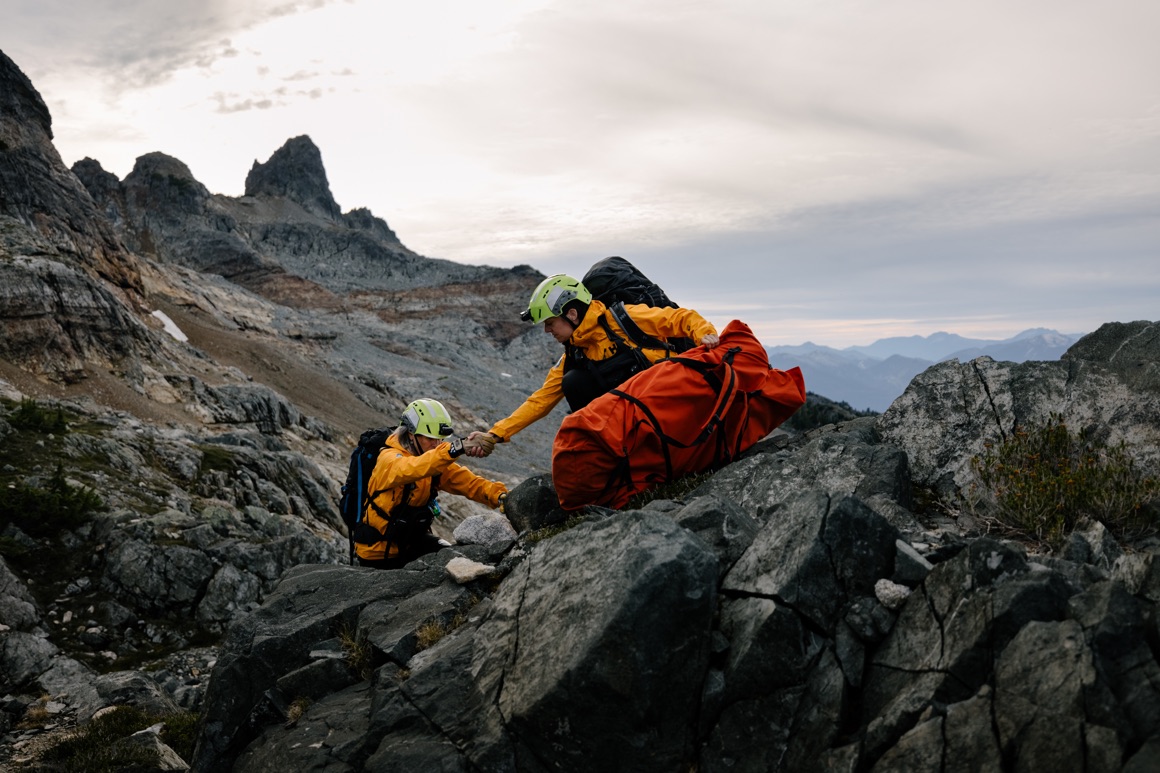
A part of the whole
Joining search and rescue (SAR) is a serious commitment. In Squamish, the initial training lasts a year and is pretty full-on as it touches all the different aspects of search and rescue. During this period, you're a "member in training," or MIT. "It's time-consuming, and you need to be aware of that before you join. You will sacrifice personal time, you will sacrifice family time, but it's so fulfilling that it doesn't really matter. You'll happily give away your weekends and evenings to go training or go on a call or do something social with the team. The hours fly by and you don't even notice," says Nathalie.
She grew up in the suburbs of Montreal, and even in flat suburbia, she had a pull to the mountains she never got to be around. The big move came when she was 19. With $500 in her pocket, the shy, introverted, and artistic girl moved out west. "I didn't know anyone, but I just knew that I had to do it. It was the strong pull within me that I couldn't ignore."
She flew to Vancouver and got on a bus to Squamish. "As soon as I got off the bus, I looked around and knew that I was home," she says. And it's a feeling that has stayed with her. "Anytime I feel stressed or overwhelmed or just feel like I need to recharge my batteries, I know that taking a few hours to go for a hike or take the family camping feels like coming home. It's hard to explain. There's nothing like it."
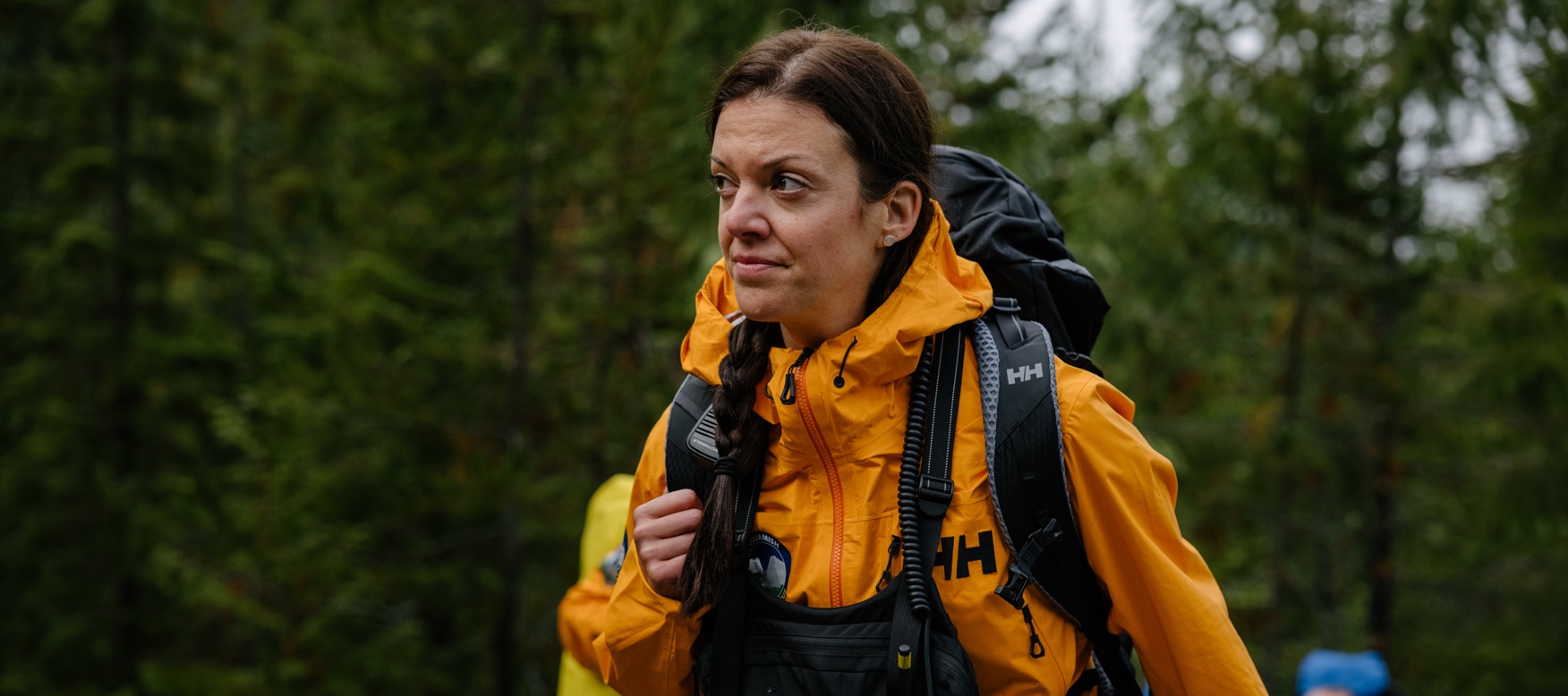
Into nature
"My favorite thing about stepping outside and walking into nature, into the forest or up a mountain, is that magical moment when you step out of the shade and the sun comes out and illuminates everything around you. That's always a moment that makes me stop what I'm doing and take it all in. The light in the forest is unlike anything that you find anywhere else. Everything is heightened: The sounds, the smells, the steam coming off rocks, the sun reflecting off the moss—it's a spiritual experience, I guess."
If you had asked Nathalie 20 years ago where she would be today, she would not have answered living on the west coast, being part of a search and rescue team. Now, heading out into the wild to rescue friends and strangers has become a part of everyday life. And in many ways, it has changed her perspective on life. "Having been with search and rescue for the last eight years has opened my eyes to the fact that the mountains don't care. If it's your day to get hurt, to get lost, no amount of preparation or expertise, or experience can necessarily prevent you from having these things happen to you. Freak accidents can happen to the best of us. Rocks can get dislodged from these walls and come tumbling down and take you out—you could be the best climber in the world, but if you're at the wrong place at the wrong moment, anything can happen, and I've seen that a few times on calls."
I think about it as a job that needs to be done. Someone out there is hurt or lost and most likely scared and needs help. And there's no one else to get to them.
The nature of rescue
People are out having a casual walk, something completely unexpected and unfortunate happens, and it's the end of their day. It can happen to anyone, Nathalie knows—the mountains don't care, but we should. She has learned firsthand that the mountains are active. They are ever-changing. Weather can close in on you when you least expect it, and all of a sudden, it's a whole new world out there.
"I think about it as a job that needs to be done. Someone out there is hurt or lost and most likely scared and needs help. And there's no one else to get to them. But we don't put ourselves at unnecessary risk or danger; everything is calculated and well-thought-out. You trust your teammates and managers. They've been doing this for years, they're incredibly well equipped, we have a huge pool of resources we can pull from.
"There are slight moments of discomfort, but we all come with a background from outdoor experiences like climbing or hiking, and being put in these kinds of environments isn’t completely out of the norm for us. Just take it one step at a time and know that you wouldn’t put yourself in any real danger. We love being in those elements, it’s where we thrive, it’s what we do on our time off. We’re often out in the same areas doing something similar, and so, when you get called out, it’s not too out of your comfort zone. There’s always something relatable to what you’re doing at that moment.”
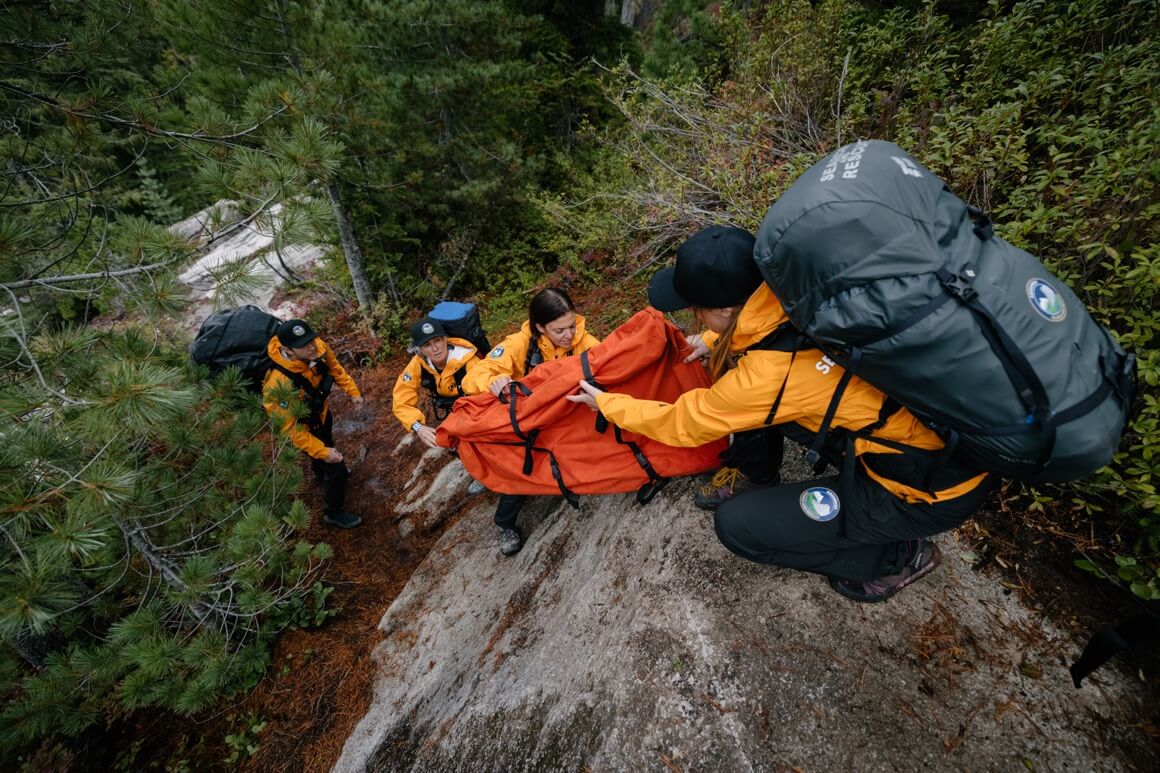
The SAR family
Nathalie’s perception of risk and tolerance has changed since having a son five years ago with a partner that is also a member of the SAR team. She is more aware of some situations but tries not to let the little ideas creeping into the back of her head get to her or stop her. “I must remain confident. I’m here for a reason. I’m here with my team, and there’s nowhere else I’d rather be,” she says.
Mommy jumping into a helicopter. Daddy rescuing a mountain climber. To her son, it’s completely normal. “I hope that one day we inspire our son to do the same, to join the team and go out and learn all these skills and go back out and give back to the community the way he’s seeing us do.”
In some ways, the Search and Rescue (SAR) team becomes a family of sorts. “I think when a small group is put together in stressful situations, it brings everyone closer together. You count on your teammates. We all have each other’s back if we get flown together to the middle of nowhere,” she explains. And since not everyone can respond to every call, they throw the odd barbeque and social gatherings to stay connected. Here they bring their families, everyone plays, and there’s a sense of, well, being part of an extended family.
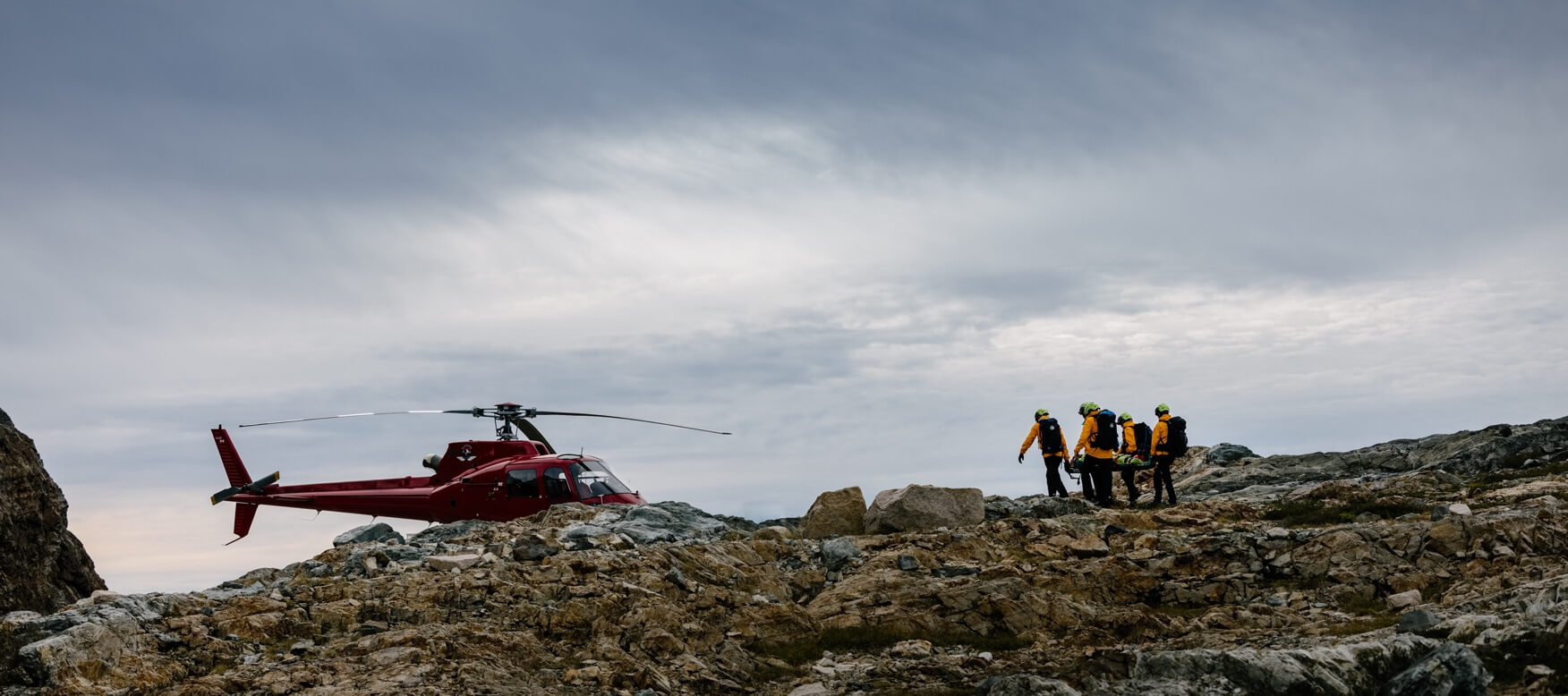
Moments later
There’s a great sense of relief and pride after a mission, after getting a person out safely, and for Nathalie, there’s no feeling like it. But it doesn’t always sink in until the next day. “If it’s a routine call, like a rolled ankle, as soon as I step back into my house and hug my son, I’m a mom again; it’s back to normal. But, with some of the heavier calls, I’d say that it really hits you the following day. From these big rushes of adrenaline, you get the come-down. It manifests itself in so many ways.”
But Nathalie would not be without it. “It’s the best feeling in the world. When everything lines up perfectly, and you’re able to help another person, to save a life, there’s no feeling like it. I don’t want this to end. I don’t see myself doing anything else. If I were to stop being involved with Search and Rescue, I wouldn’t know how to fill that void. When I go out on a call, I’m so rejuvenated. It’s intense, it’s fun, it’s scary, it’s exciting, it’s everything. If you don’t challenge yourself a little bit now and then, if you don’t scare yourself now and then, if you don’t put yourself in a situation that’s uncomfortable now and then, you’re missing out on something.”
more from the Belong in the moment series
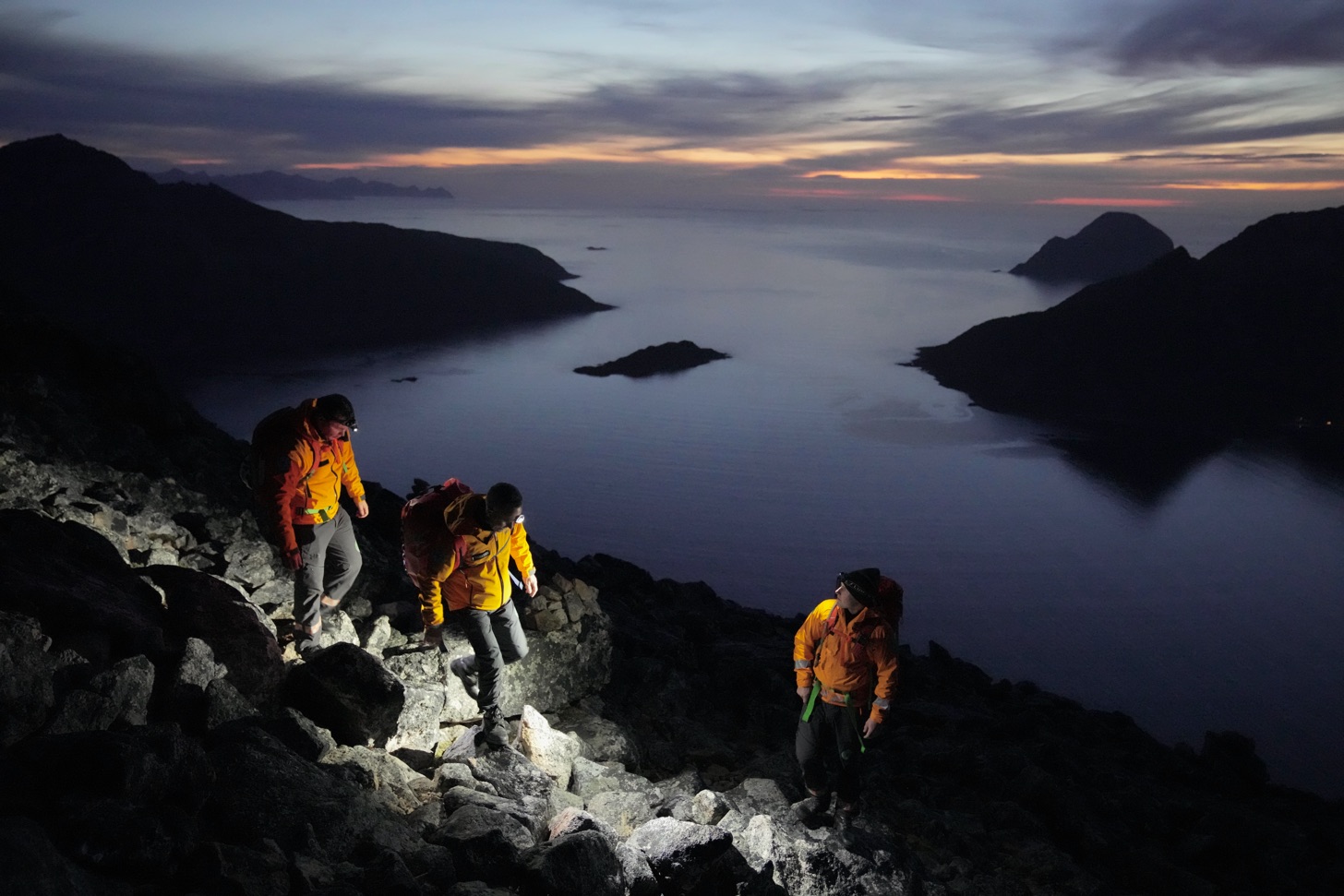
AS DARKNESS SETS IN: SEARCH AND RESCUE IN NORTHERN NORWAY
The mountains can be a harsh and unforgiving environment. It can also give you a sense of belonging like nothing else.
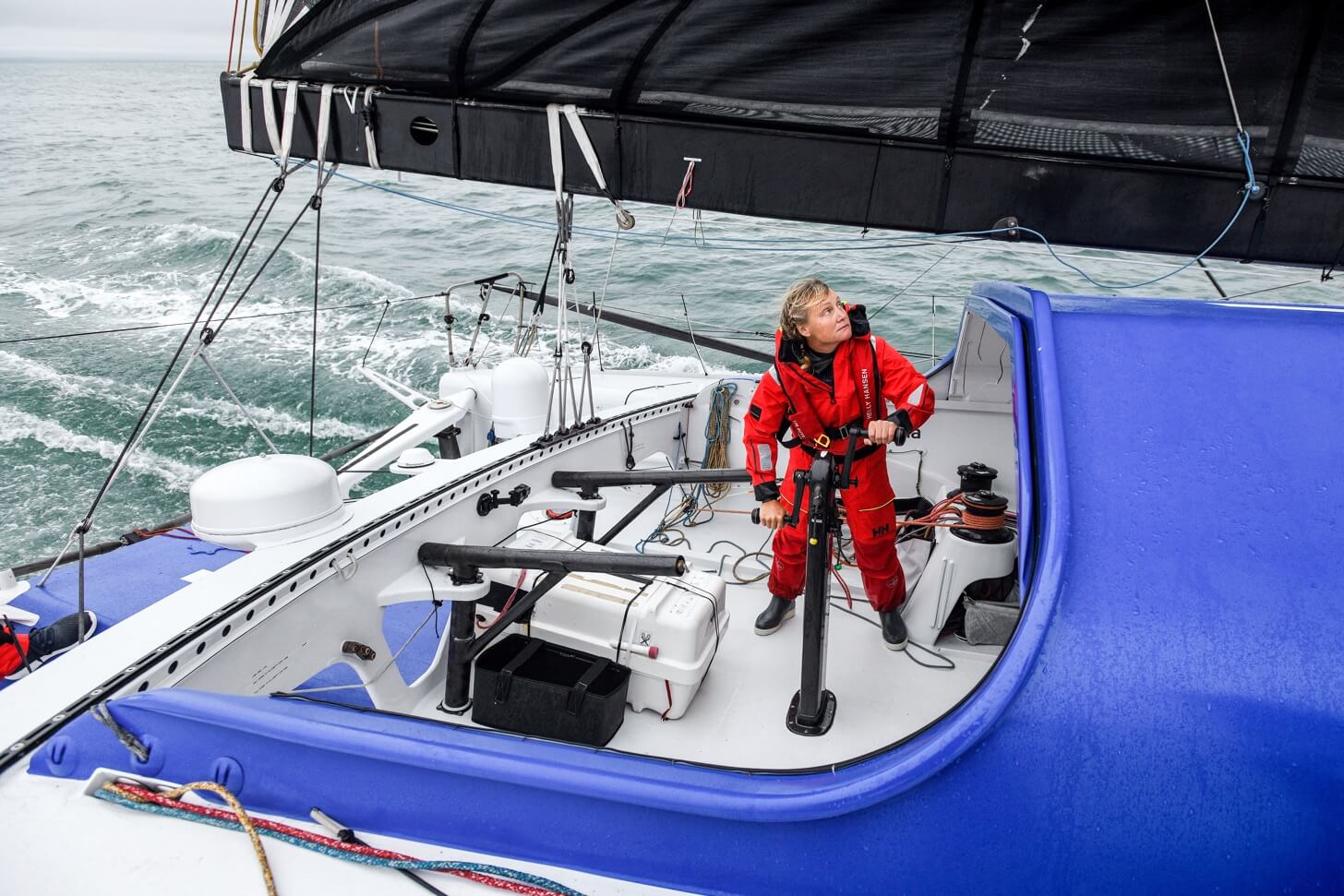
THE OCEAN IS MY HOME | PIP HARE
The Vendée Globe is three months alone at sea, thousands of miles away from help. In 2024, Pip is doing it again.

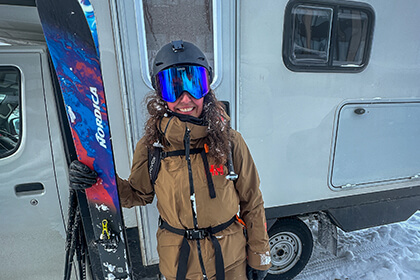
October 21, 2025 10 min read
How to plan your ski trip to Japan
Skiing Japan with Nat Segal: Hokkaido RV adventure, volcano tours, and how to thrive through a dry spell.
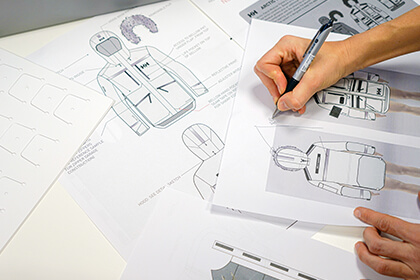
September 29, 2025 4 min read
Behind the design: The Arctic Patrol Down Parka
An inside look at how Helly Hansen designed the Arctic Patrol Down Parka with insights from Arctic scientists for extreme conditions.